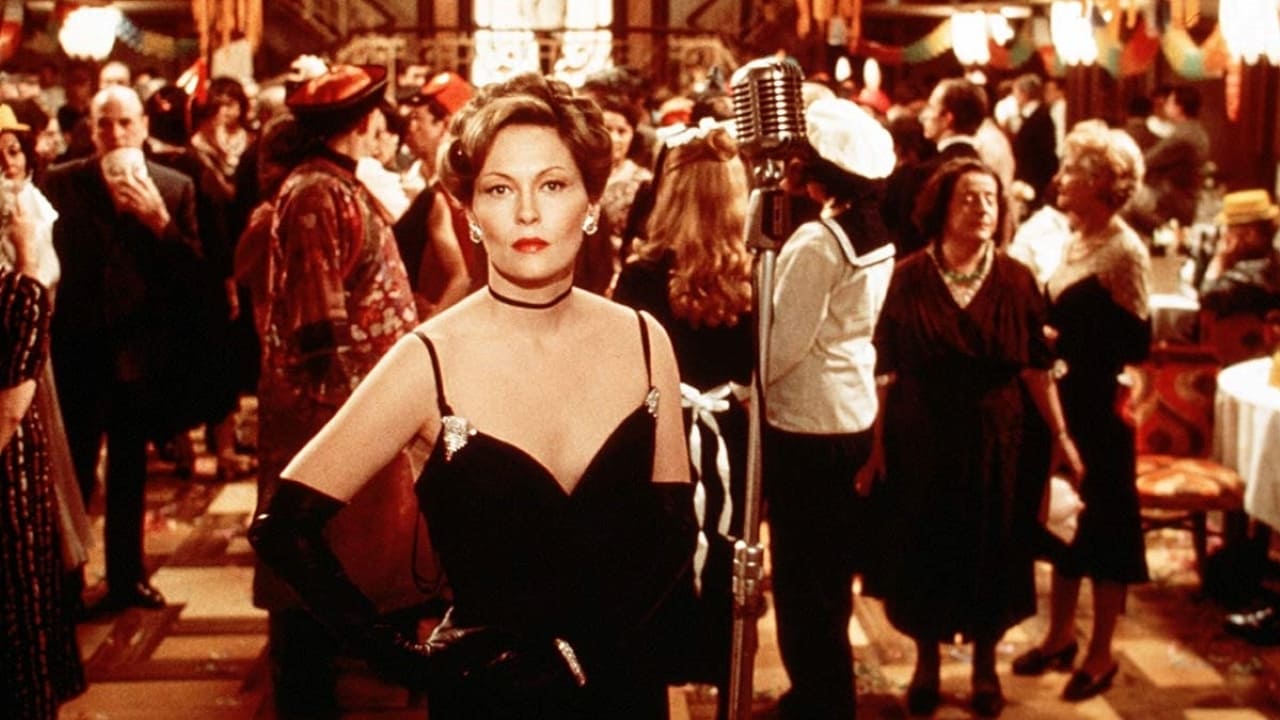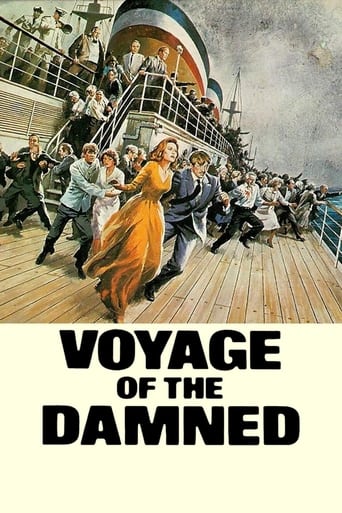

Too much of everything
... View MoreIn truth, there is barely enough story here to make a film.
... View MoreIt’s fine. It's literally the definition of a fine movie. You’ve seen it before, you know every beat and outcome before the characters even do. Only question is how much escapism you’re looking for.
... View MoreIt is an exhilarating, distressing, funny and profound film, with one of the more memorable film scores in years,
... View MoreGoodish, and well-intentioned, but not great. Based on a true story, this should be a gut-wrenching emotional roller-coaster ride. The movie feels cold, empty and sterile, despite its subject matter. While we are given glimpses of the despicableness of the Nazi regime, the movie pulls its punches. In place of genuine emotion, we have overwrought sub-plots, and an excess of sub-plots. This makes the movie overly long, without really adding to the drama. Some of the acting is in line with this overwroughtness, being over-acted, almost camp.Not all the performances are so bad, though. Max von Sydow is excellent as the captain. Minor roles include a host of big names: Orson Welles, James Mason, Denholm Elliott, Katharine Ross, Jose Ferrer, Ben Gazzara.Worth watching as a reminder of a dark period in human history, and the lengths of human bigotry.
... View MoreFaye Dunaway, and a slew of British and/or internationally-known actors and actresses too many to mention, are in this movie about a ship of Jews who were ordered out of Germany but can't get in Cuba, which was their destination. Based on a real incident, it's hard to say that's it's a good movie for entertainment's sake, knowing someone's suffering and bad experience is the basis for this. But, it is very engrossing and thoroughly watchable without it being heavy-handed or bogged down in tediousness. I'm sure the dramatics of this story was embellished on (Lee Grant and Sam Wanamaker and daughter), but, on the whole, it was very eye-opening and educational for someone who knows hardly anything about the personal treatment of Jews just prior to WWII. It's put on a more personal, individual level than say "Schindler's List," which may make some viewers feel overwhelmed by the massacre feel to it.The acting is of course superb by all, especially by Wendy Hiller and Luther Adler who both give much integrity to their roles as an aging couple leaving their homeland, which was habitable before a certain someone rose to power and made life miserable for the Jews.Ben Gazzara is on land and is in the midst of trying to help them to get off the ship, but he is caught in legal red tape. Orson Welles provides another highlight of the film, as he is exceptional as a man of influence but is constantly telling Gazzara his hands are tied. Welles always did have a way about him and could make the simplest lines sound like poetry.If you've never seen "Voyage of the Damned," then it's time you learn about the history of us all and the ultimate fate of those on that solitary ship that sailed and floated and wandered for a month.....
... View MoreStanley Kramer's "Ship of Fools" was an entertaining story of a congeries of disparate characters aboard a German cruise ship in the 1930s. It must have been a success because this negligible film is a shameless and bathetic rip off. This time, the entire ship's passenger list is Jewish and they suffer crisis after crisis. The fact that German Jews in 1939 were actually suffering those crises makes this blatantly commercial attempt at exploitation a cheapening of the historical experience.It really IS a rip off. I mean, that's not rhetoric. Oskar Werner plays a doctor in both movies. Jose Ferrer is cheerfully villainous in both. There is a liaison between a member of the crew and a desperate passenger in both. There is a costume party in both. There's the familiar rabid Nazi commisar whose job is to keep an eye on party loyalty among the crew. It reminds me of the way cars are remodeled year by year, a bit of new chrome here, a set of new tail lights there, all in an attempt to cash in on novelty.Nice cast, though. Not just expensive Hollywood actors -- in fact, no leading stars at all -- but a lot of competent supporting players, some of whom have made careers out of gracing the screen for a few moments with superb performances. Orson Welles is on hand, as are Max von Sydow, Malcolm MacDowell, Lee Grant, and the endless list of recognizable faces that these kinds of films require. The budget must have been sizable. Faye Dunaway appears in a costume that looks like a copy of John Singer Sargent's Madame X. Add a black choker. The wardrobe is emblematic of the whole enterprise. Copy something and then add a few disguising touches.But it's still tragedy played for lower middle-brows who will weep generous tears as the director manipulates their sentimentality and rakes in the shekels. The director is Stuart Rosenberg. I can't imagine how he managed to turn out a magnificent movie like "Cool Hand Luke." This stuff is all in your face.I don't like propaganda movies in general regardless of their source region. They don't really convert anyone or change already existing sentiments. Most attitudes follow the usual bell-shaped curve, with the overwhelming majority of people occupying the middle part -- ignorant or indifferent or genuinely moderate -- with a few extremists at either end. But I suspect that movies like this, carrying the heavy burden of an "important" social message, will reach respondents that form a rarer U-shaped curve. Those who are already sympathetic to the message will applaud it. Those who aren't, will dismiss it bitterly as the kind of propaganda they've come to expect from Hollywood. So, if it isn't going to improve our souls, what is its purpose, aside from commercial success? A rite of intensification for those of us who agree with its message. The people who made the movie know which side the angels are on, and so do we. It allows us to despise those who don't. I'm afraid movies like this generate as much hatred as empathy.I'd watch "Ship of Fools" again any time, but not this. It shows nothing that we didn't know or guess before. The fact that it resembles a genuine historical incident is irrelevant. I don't mean to seem, well, carried away but I do wish there had been some understatement here. I suppose it would be too much to ask for a little poetry too.
... View MoreVoyage of the Damned is a criminally little seen all star cast drama with a veritable who's who of cinema. the story is heartbreaking and true it was all to do with a mass propaganda exercise in which a thousand or more Jews were to leave hamburg for the sunny tropics of Cuba but were never allowed to disembark, the rest of the film shows the dramatic efforts in which the passengers do to seek asylum, magnificent the casting is Ben Gazzara headlines the film has real life humanitarian Morris Troper, Victor Spinetti, plays a German doctor who tries to get his kids off the ship, Orson Welles plays a Cuban diplomat, Katherine Ross is a kindly prostitute, and Malcolm Mcdowell plays a young steward.this film is strangely listed on my VHS with the running time of 2 hours and fifty eight minutes, the current region 2 DVD is at a running time of 2 hours and thirty minutes! so it seems their has been some cutting.
... View More